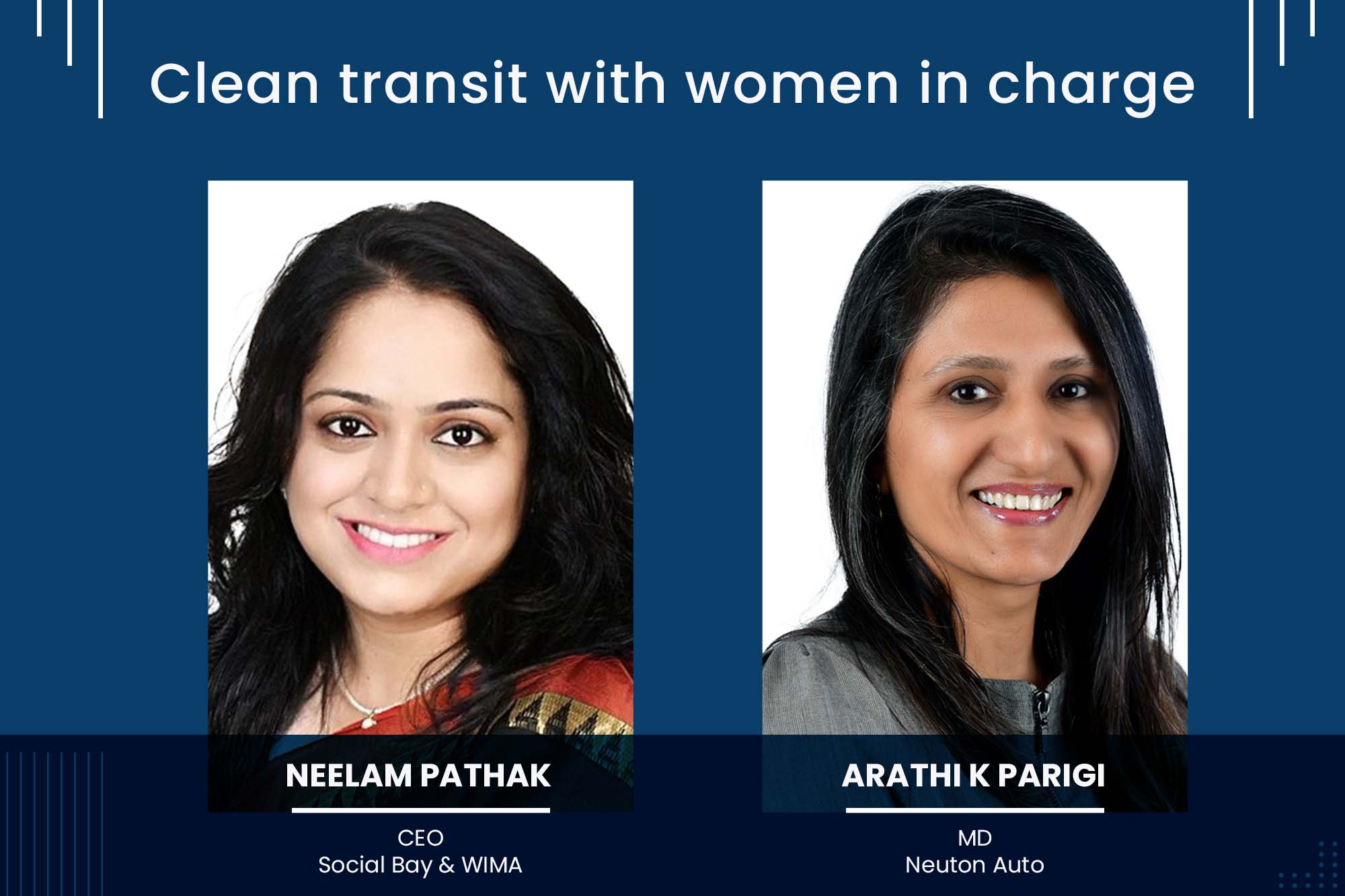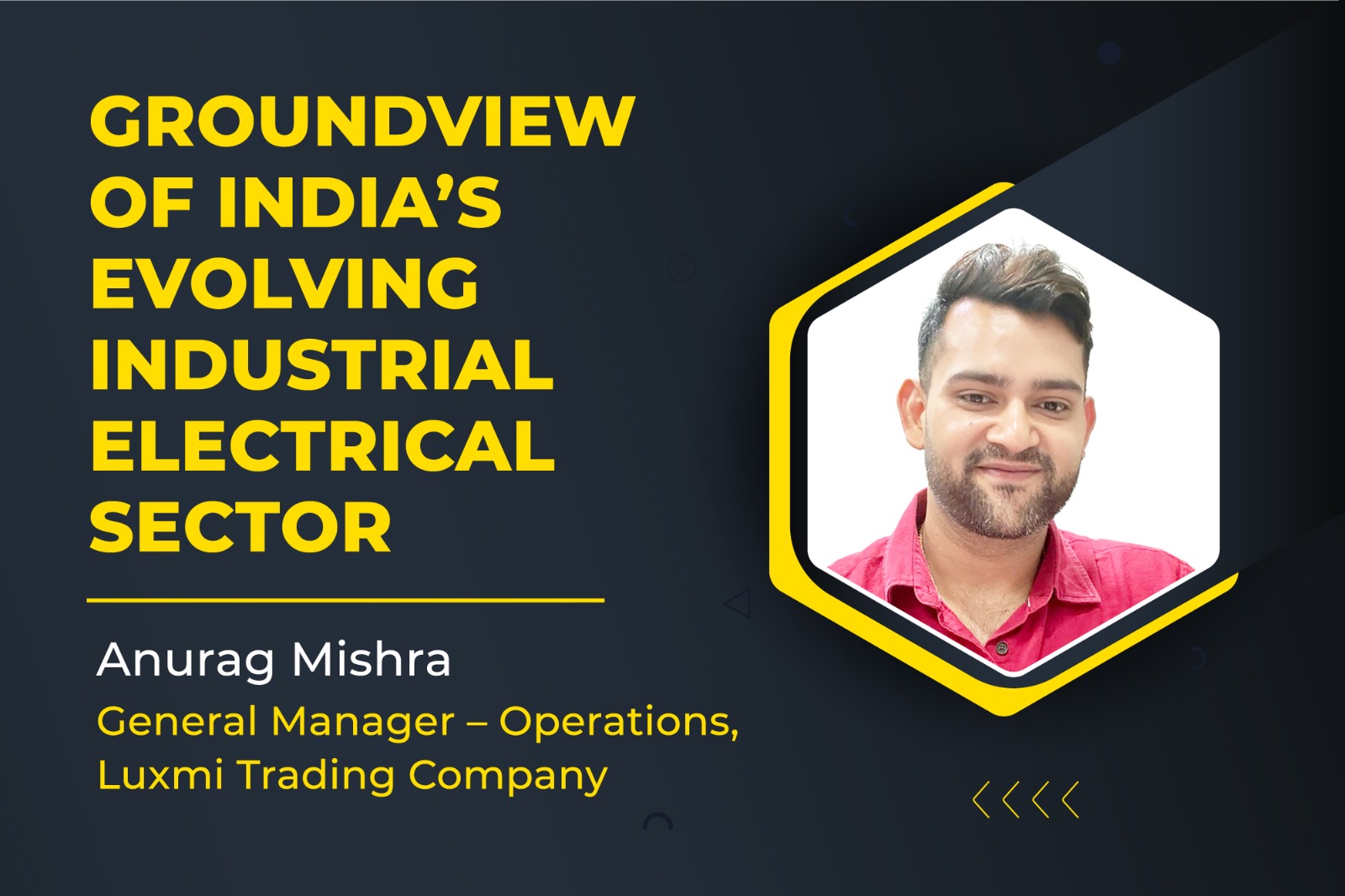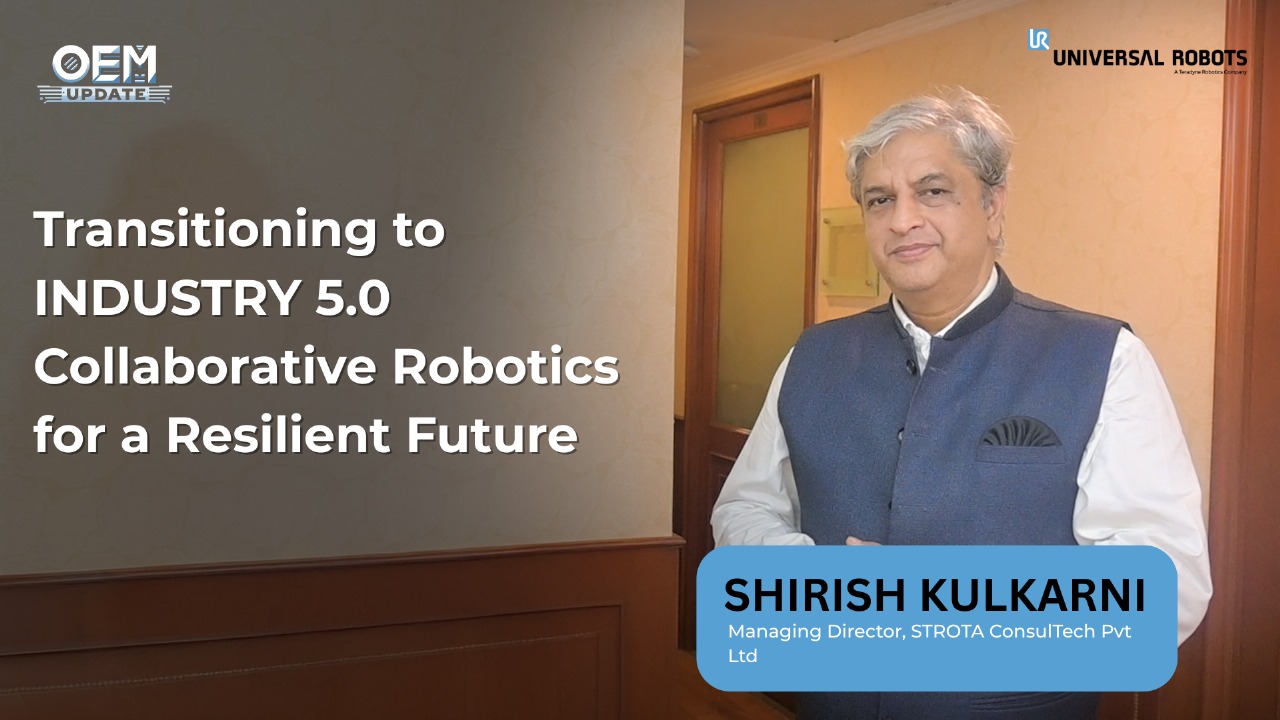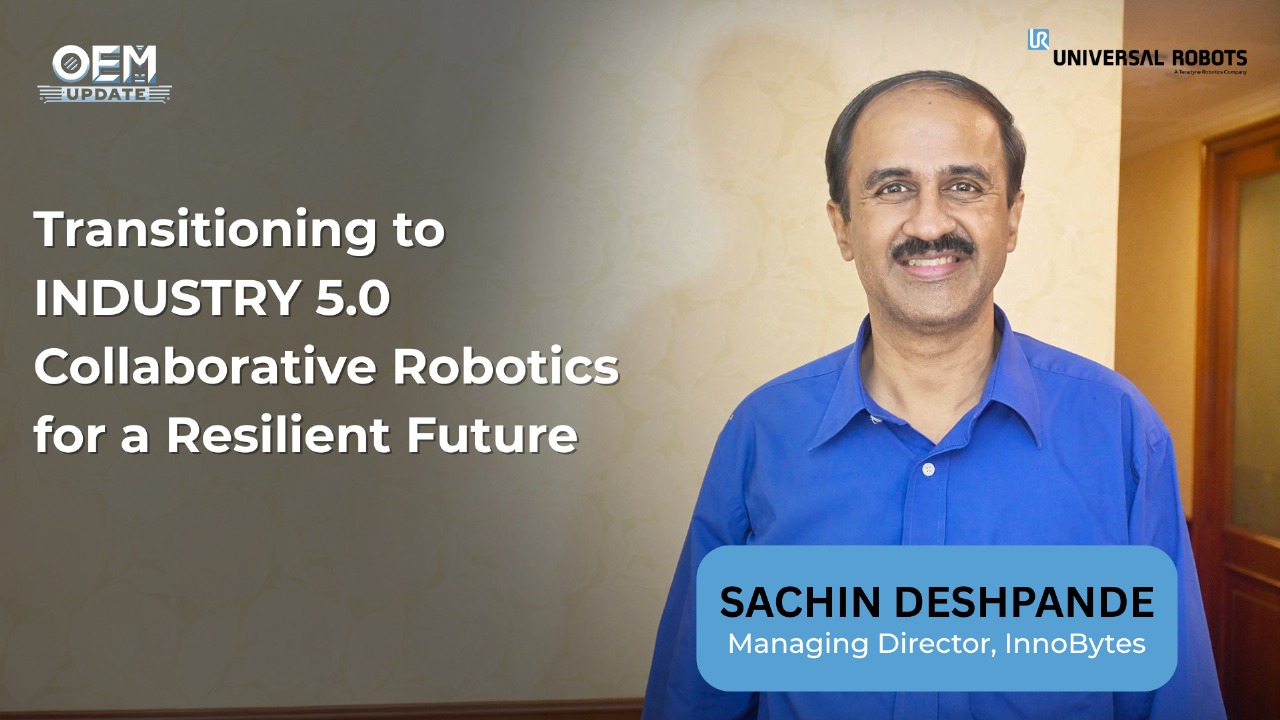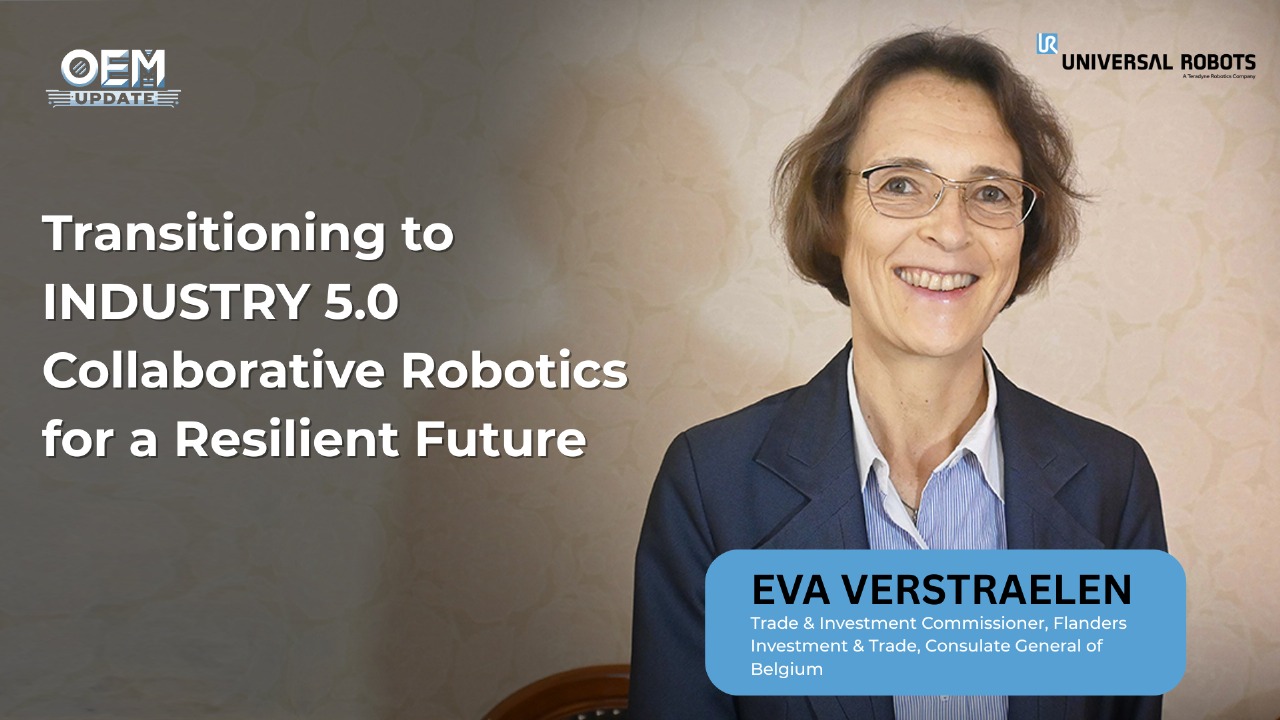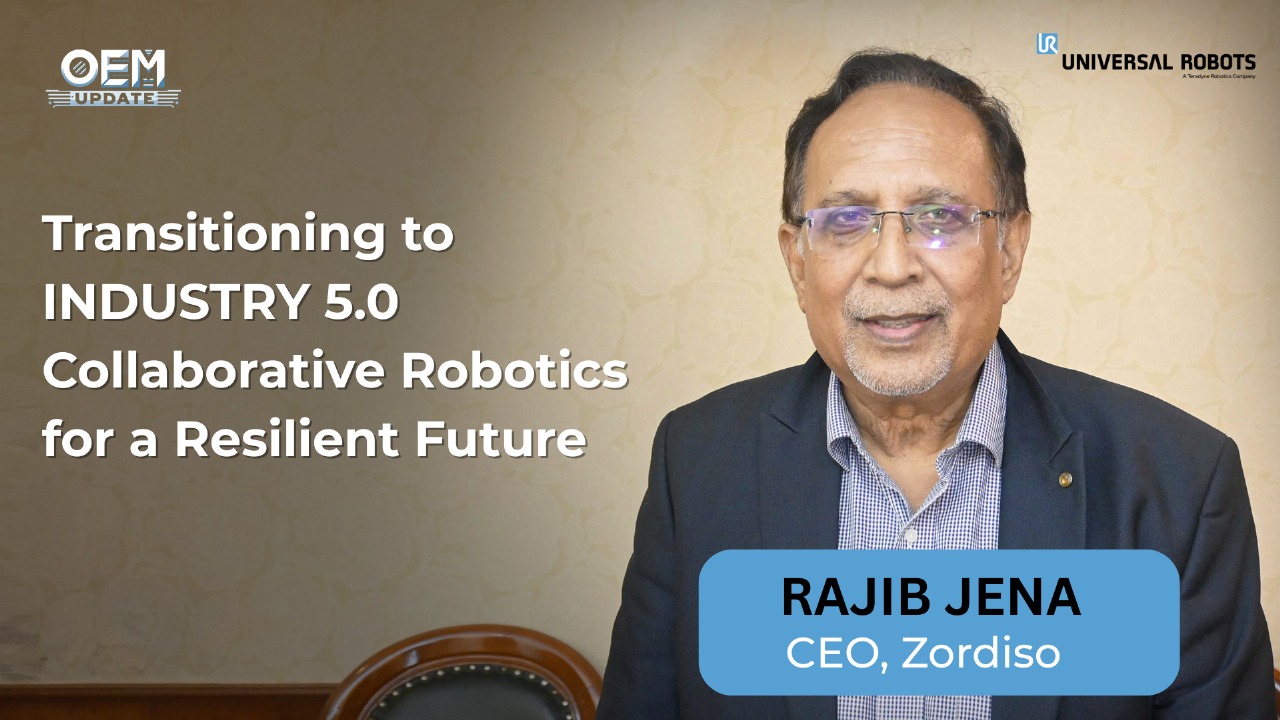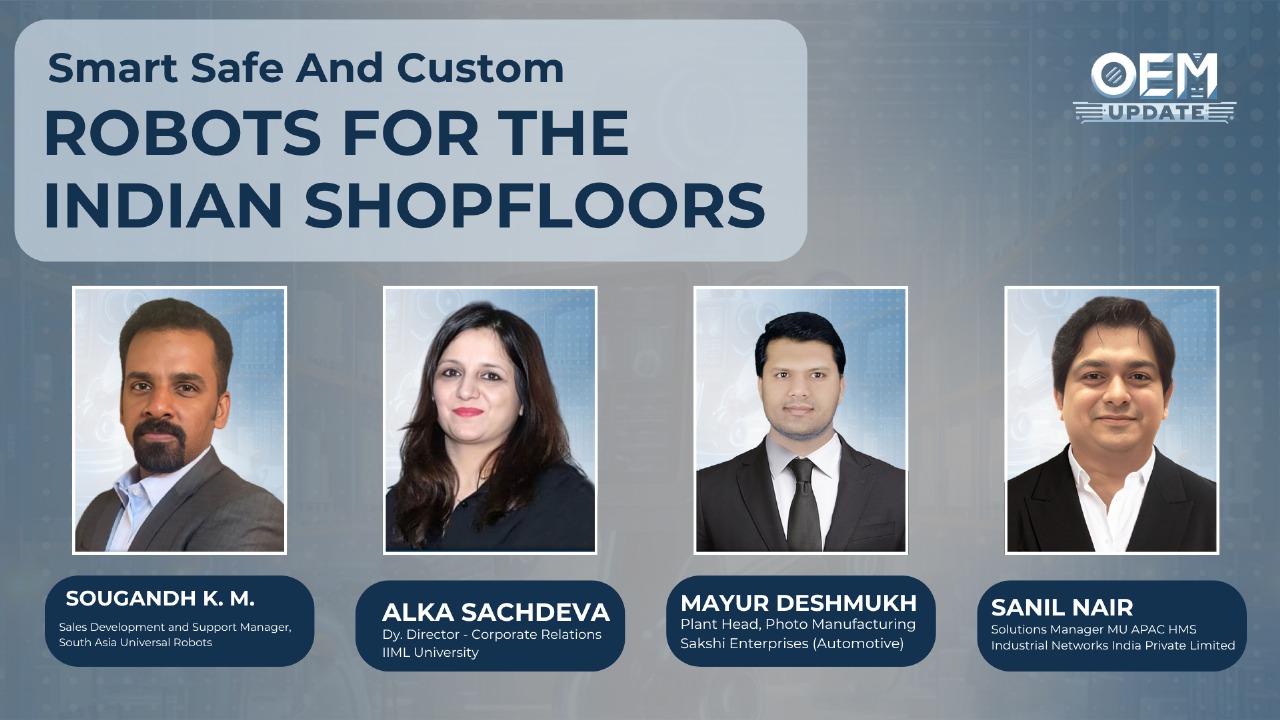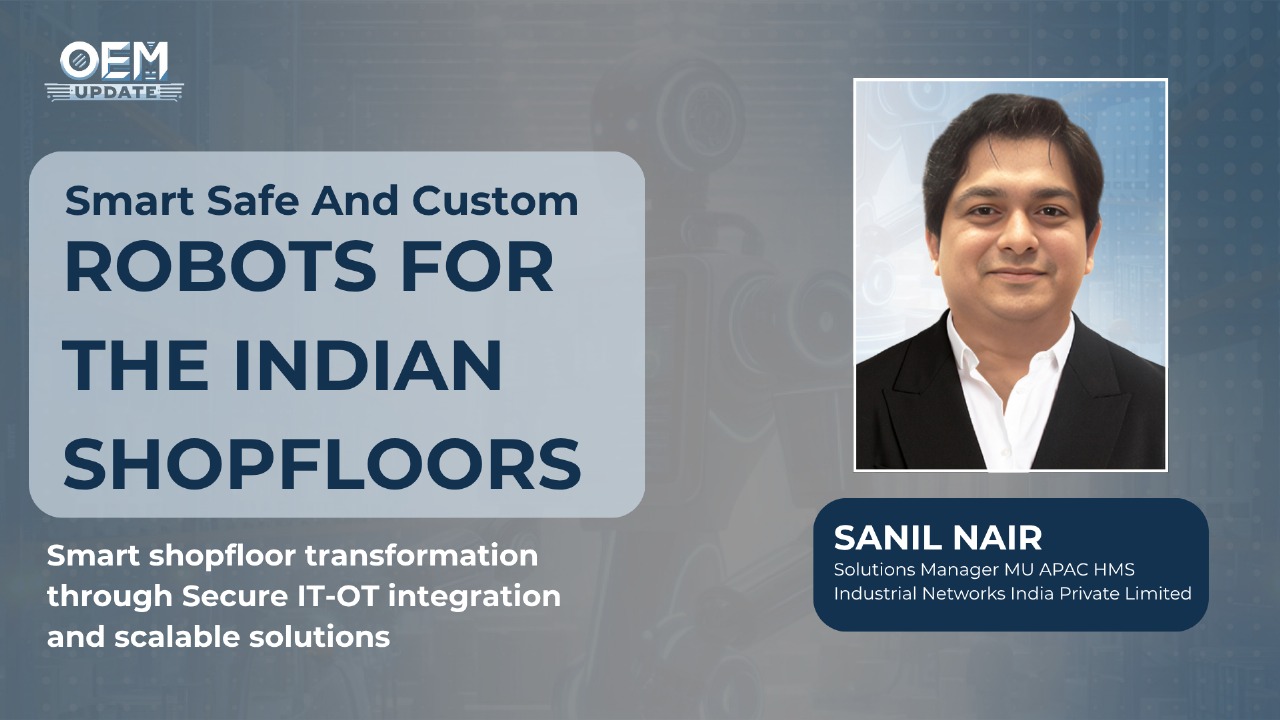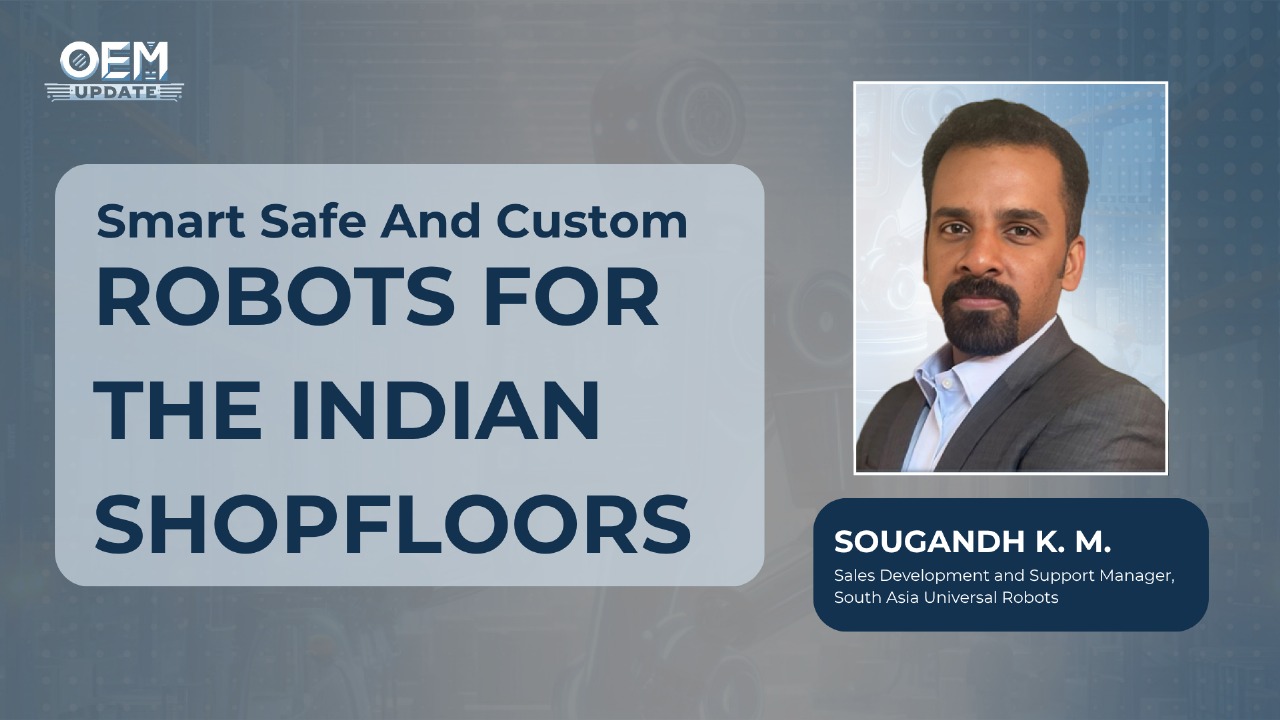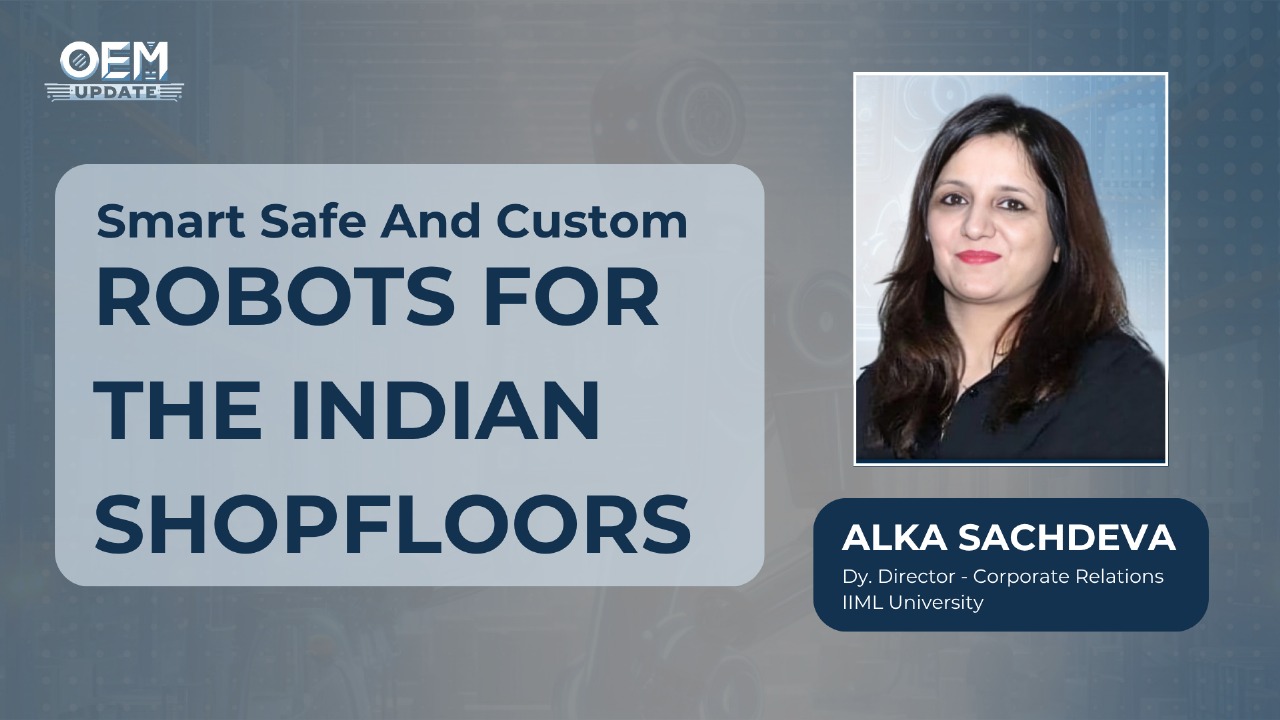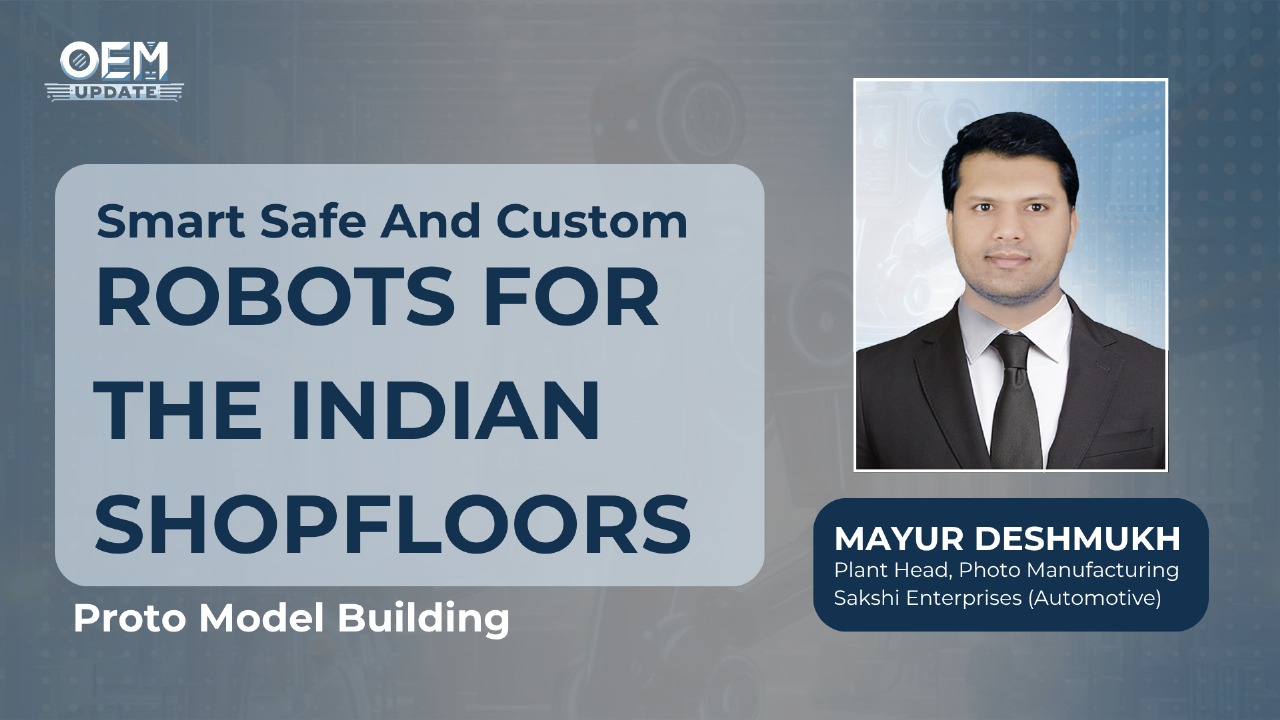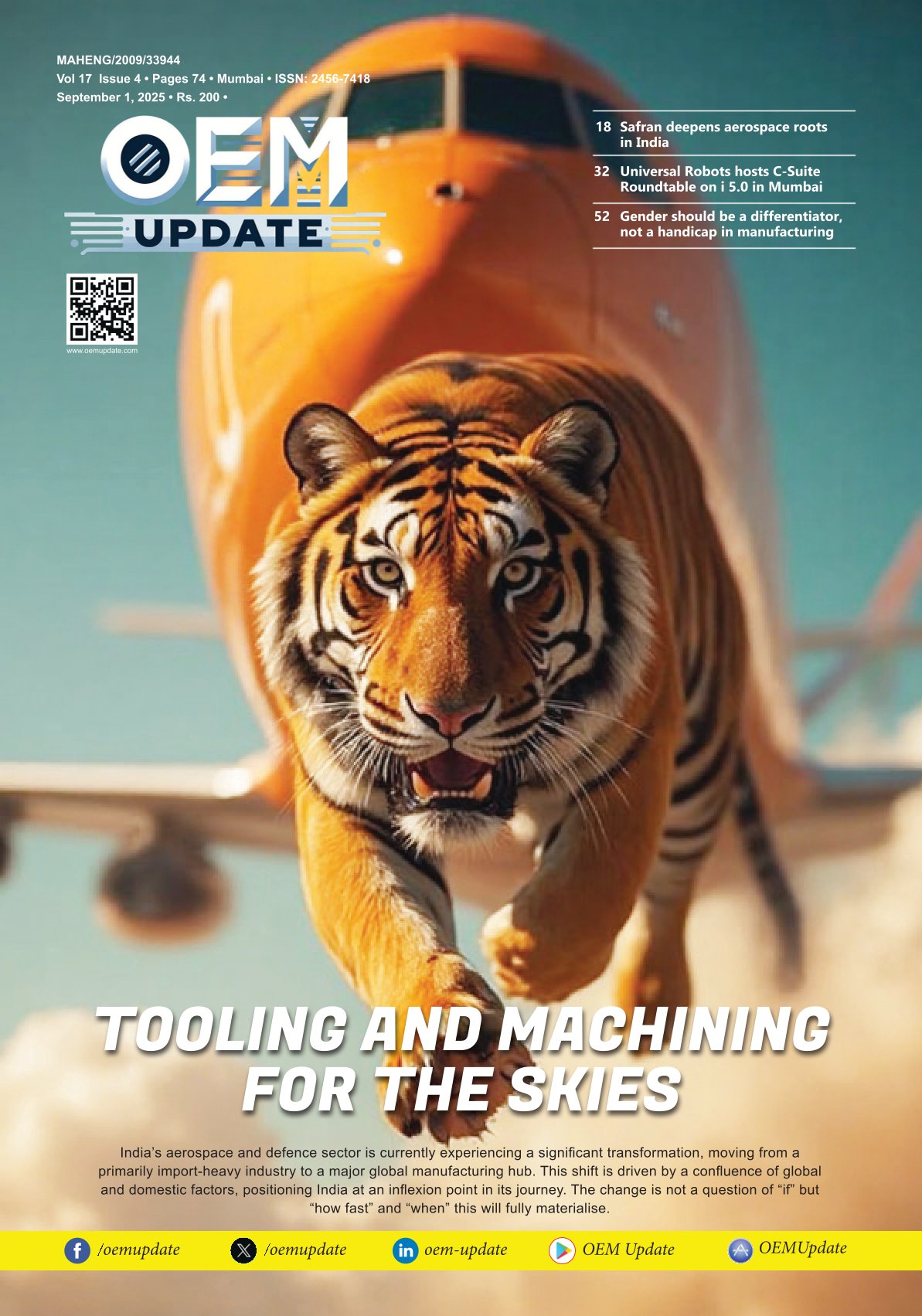Clean transit with women in charge
By Staff Report August 8, 2025 4:59 pm IST
In a sector as dynamic and transformative as electric mobility, leaders who combine purpose with innovation stand out. One such trailblazer is Arathi, a second-generation entrepreneur whose roots in the automotive sector and passion for sustainability led to the creation of Neuton Auto—a company reimagining India’s public transport landscape with indigenous electric buses.
In this exclusive conversation, Neelam Pathak, Founder of WIMA (Women in Manufacturing & Allied Industries), speaks with Arathi about her inspiring journey into EV manufacturing, breaking gender barriers in a traditionally male-dominated industry, and her vision for a cleaner, more inclusive future of mobility. From the birth of Neuton Auto to mentoring women in core engineering roles, Arathi shares insights that are both deeply personal and widely relevant—especially for women aspiring to make an impact in manufacturing and green innovation.
Neelam: What inspired your journey into the electric mobility sector, and how did Neuton Bus come into being? Was there a defining moment that shaped your leadership path in this industry?
Arathi: My journey into electric mobility is purpose-led. I come from a family rooted in the automobile sector, with my father being a technocrat and entrepreneur who built a legacy in auto retail, services and bus manufacturing. The defining moment came when we saw firsthand both the challenges and the transformative potential of sustainable transport in India.
That’s when we decided to focus on electric mobility; it wasn’t just a business decision, it was a conviction. Neuton Auto was born out of that conviction, that India needs cleaner, smarter and more accessible transport solutions, and that we could build that from the ground up with indigenous innovation.
Neelam: Leading in the traditionally male-dominated manufacturing sector comes with unique challenges. What hurdles have you faced as a woman in this space, and how did you overcome them?
Arathi: The manufacturing floor and boardroom alike are still largely male-dominated spaces, and early on, I had to establish credibility as a woman with a voice, vision, and technical insight. There were moments of hesitation from external stakeholders and internal team members, but I learned to lean into authenticity, preparation and resilience.
I also found strength in collaboration, building a team culture where capability and commitment mattered more than titles or background. Over time, the results spoke for themselves, and perception began to shift. But I won’t deny that every woman in this field still carries the responsibility of proving herself, but we need to endure that to create pathways for others.
Neelam: What steps is Neuton Auto taking to promote gender diversity and create a more inclusive workforce? How do you envision the evolving role of women in EV manufacturing?
Arathi: We are intentional about building an inclusive culture at Neuton Auto. We are keen to encourage women in core functions like engineering, production, and R&D by mentoring them and supporting their growth when returning to the workforce.
The role of women in EV manufacturing is evolving from tokenism to leadership. Women are not limited to the designing and building roles. They hold key say in strategy making, sustainability and stakeholder value. I envision a future where gender diversity is the norm, not the exception and where women lead the shift toward clean and conscious mobility.
Neelam: In your view, what core skills and capabilities will define success in the EV and green mobility sectors? How can young women prepare for these emerging roles?
Arathi: EV and green mobility sectors demand a combination of technical depth, systems thinking and a sustainability mindset. Whether it’s battery technology, vehicle design, digital integration or circular supply chains, there’s a need for cross-disciplinary learning.
To young women, I say: stay curious, build strong foundations in STEM, and also hone your storytelling, negotiation and decision-making skills. Be unafraid to ask questions, to lead projects, to show up. This is a once-in-a-generation opportunity to help reshape how India moves, and your perspective matters.
Neelam: How does Neuton Auto approach innovation, balancing sustainability, cost-efficiency, and the unique demands of Indian transport systems?
Arathi: We approach innovation with empathy and pragmatism. India’s public transport landscape is complex, with both urban and rural areas bringing stark differences in the mobility sector. It is highly populated yet low-margin, with infrastructure-related challenges, but there are opportunities abound. So, our design philosophy at Neuton combines functionality with superior ride quality. We believe in making bus travel aspirational for a fast-developing nation.
We invest in modular platforms and superior suspension that provides better ride quality. Our smart powertrains reduce lifecycle costs while meeting real-world needs, like ease of maintenance, uptime and performance in varying climatic and road conditions.
Neelam: Why do you believe platforms like WIMA (Women in Manufacturing & Allied Industries) are important? How can they support professionals, companies, and students to create a stronger ecosystem for women in this sector?
Arathi: WIMA bridges the visibility gap. It’s not that capable women don’t exist in manufacturing; they often lack the networks, the mentors or the spotlight. Platforms like WIMA can catalyse confidence, promote collaboration and bring together industry, academia, and government in building a stronger pipeline of women professionals.
For companies, it offers access to talent, thought leadership for students, and provides role models and mentors. It’s a place to lean in and scale impact for professionals. More than anything, it creates a sense of shared purpose.
Neelam: Reflecting on your journey, what has been your proudest milestone? What advice would you share with aspiring women leaders looking to make an impact in manufacturing and allied industries?
Arathi: One of my proudest moments was seeing our first electric city receive its CMVR certificate from ARAI Pune, commencing our production simultaneously. Our electric buses are shaped by our vision and powered by our belief.
To aspiring women leaders, the world doesn’t change with one leap; it shifts when each of us dares to take that first step. Equip yourself, build your tribe and stay rooted in your ‘why’. Manufacturing is not solely about machines; it is about creating a purposeful future.
Cookie Consent
We use cookies to personalize your experience. By continuing to visit this website you agree to our Terms & Conditions, Privacy Policy and Cookie Policy.



